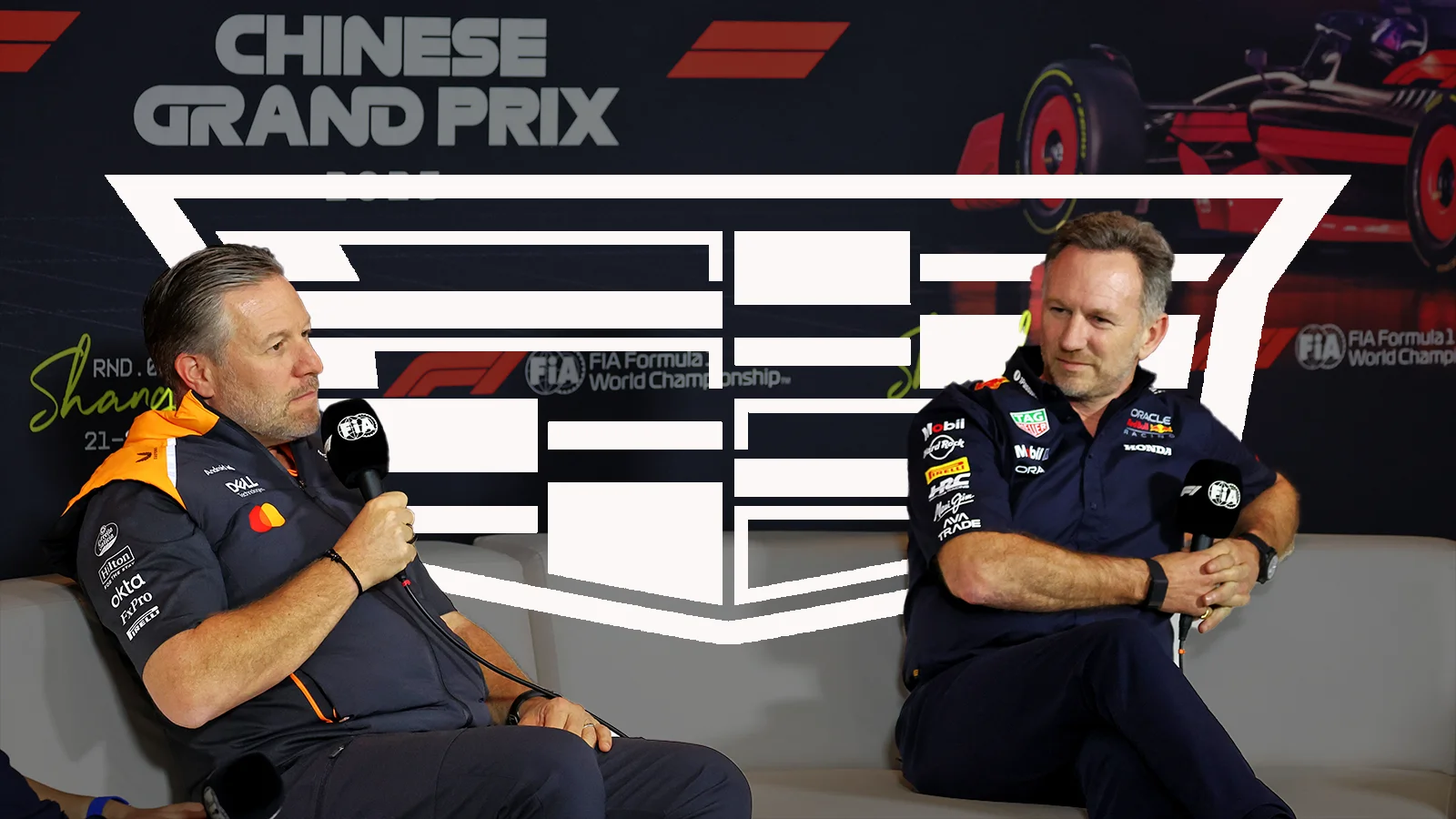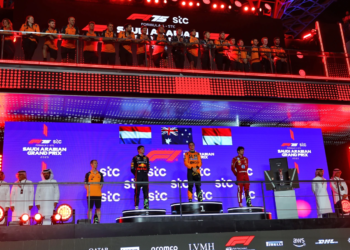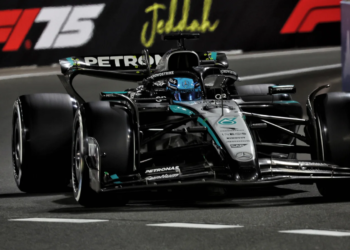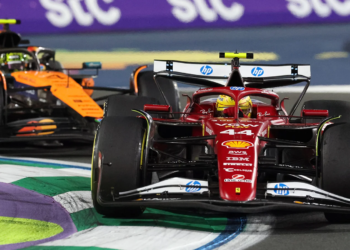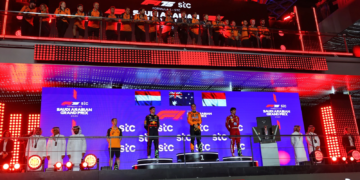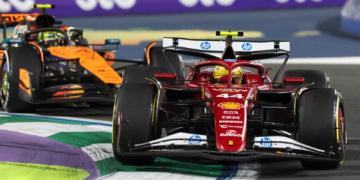Formula 1 team bosses have cooled concerns over prize money being split 11 ways in 2026, hailing the “big brand” commercial impact new entrant Cadillac brings to the party.
General Motors’ brand Cadillac’s entry has been made official in F1 for the 2026 season and beyond.
That brings the grid to 11 teams, 22 drivers and in 2028, six OEMs, as Cadillac is preparing a bespoke power unit to join the ranks of Mercedes, Ferrari, Red Bull, Honda and Audi.
A new commercial Concorde Agreement, effective in 2026, has also been signed by all 11 entrants, featuring a $600 million anti-dilution for new teams.
Cadillac, meanwhile, will pay $450 million to join the F1 circus, which is still a significant jump from the $200 million fee set in the outgoing Concorde Agreement.
Probed on Cadillac’s official entry in Shanghai, Red Bull, McLaren and Alpine chiefs all spoke positively regarding the American marque’s impact on F1.
“GM is a big brand,” began Red Bull CEO and Team Principal Christian Horner, who went on to explain many other brands wouldn’t have made thei way into F1.
“I think if it was anybody other than GM, we’d probably have a bigger issue with it,” Horner opined.
“The prospect of a GM versus Ford competition, I think, is somewhat appealing.
“Look, they’ve hit the criteria in terms of coming into the sport. The dilution – obviously the cake is split between 11 now rather than 10.
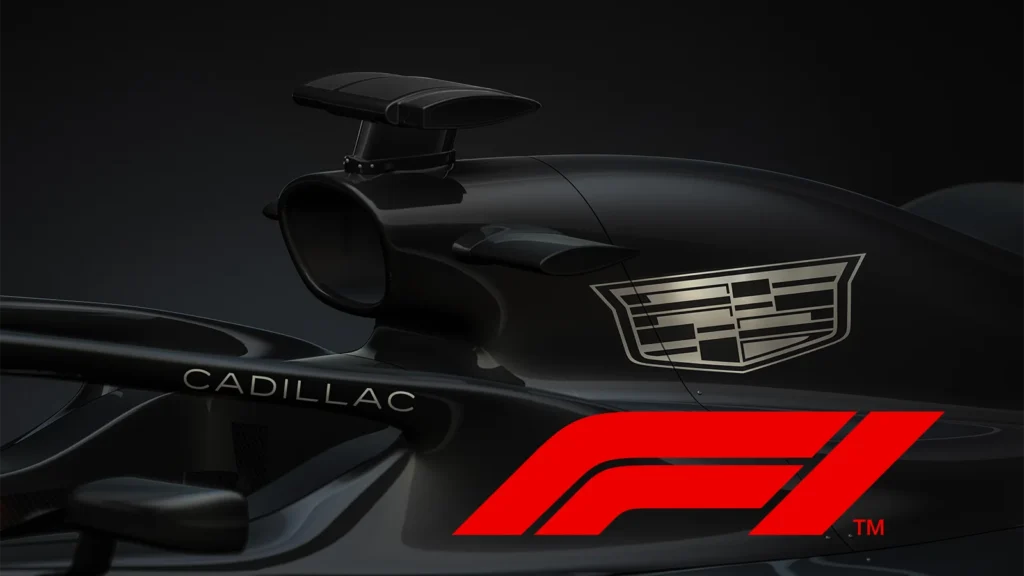
“We all got an early Christmas bonus as part of their signing-on fee, so that’s obviously negated the impact in the short term.
“A big brand like GM coming into the sport—I think it’s a positive. It shows the appeal of Formula 1.
“It would have been unimaginable probably five or six years ago to think of a brand like Ford Motor Company and GM coming into Formula 1.
“I think it just demonstrates the strength and power of the sport and the global appeal of Formula 1 to have these big American brands coming in.”
Cadillac entry ‘exciting’ for ‘healthy’ F1 – Brown
McLaren CEO Zak Brown concurred with Horneer’s vision of the Cadillac F1 entry.
Moreover, the American believes it’s a sign that the sport is in rude health.
“I think it’s going to be exciting for the fans – they like new teams, new tracks, new power units, new drivers,” he began.
“So it’ll be something that everyone’s going to be looking at. As Christian said, around the economics, it’s fine.
“I think they’ll find F1’s a big, big challenge, but I think it’s going to be exciting for the sport.
“And it’s amazing—if you look at where the sport’s come in five years—five years ago we were fighting to keep teams.
“Now, five years later, people are fighting to get on the grid. I think that speaks to the health of the sport and the job that [F1 CEO] Stefano [Domenicali] and Liberty [Media] have done to grow it.
“You look at the health of all the racing teams and the people who want to join—it just shows how strong our sport is and that it’s going from strength to strength.”
Rounding out the acclaim was Alpine Team Principal Oliver Oakes, who again feels the financial impact of splitting prize money 11 ways has been mitigated.
“It’s a great brand to come in,” Oakes said.
“I think it’s another good storyline for 2026 along with the reg change. And I guess, as both said, we’ve got a few financial directors who are probably quite happy now looking at their bank balances. It’s all good.”
READ MORE – Cadillac confident F1 cost cap will inspire potential success

